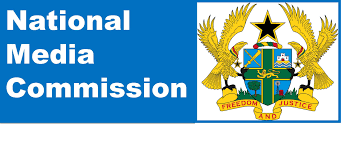Editorial
Know sickle cell status to avoid marital disappointment
Knowing your sickle cell status before falling in love is advised for young adults planning to be married in the future.
As sickle cell disease (SCD) sufferers have terrible experiences, this will help prevent heartaches, disappointments, and even divorce after having children with SCD later in life.
This is essential to keep people from marrying others who have sickle cell in their genes, which would expose them to the potentially fatal consequences of SCD according to Ms. Charlotte Owusu, the founder of the Sickle Cell Condition Advocates (SICCA).
During the introduction of a national SCD policy aimed at enhancing comprehensive and coordinated healthcare services for sufferers nationwide Ghanaians, particularly the young, were cautioned by Ms. Owusu not to minimise the condition, which causes a health, financial, and societal cost.
Some people do not check their sickle cell status before getting married, and this has been harming their marriages. Those who have children with sickle cell disease wish it had never been discovered, but it is too late.
Due to their children’s SCD, some people have lost their children, while others have experienced unsuccessful marriages.
According to statistics, one in four Ghanaians are thought to carry the sickle cell trait, which is indicated by the haemoglobin S or C gene. Sadly, some people are unaware of their status.
Also, nine out of 10 Ghanaians, according to national statistics, do not know if they have sickle cell disease (SCD). This situation is made worse by the fact that between 15,000 and 20,000 babies are born with SCD in Ghana each year, which accounts for two percent of all live births.
This is a serious matter, and a lot of education should be done to promote it in the media so that people will take it seriously enough for their own benefit.
Since one in every 50 Ghanaian children is thought to have sickle cell disease, with 50 to 90 percent of them passing away before turning five, it is therefore advantageous for young people to get screened for the condition as soon as possible.
In order to make the best choice, several religious organisations have mandated that prospective couples check their status as soon as they begin counselling. Knowing one’s status prior to marriage is preferable to being married and then having problems after having children.
It is a positive move, and The Spectator would like to encourage religious leaders to use their platforms to inform followers – especially young people – about their position.
Although there are treatments like hydroxyurea, penicillin, folic acid, and bone marrow transplants, among others, prevention of sickle cell disease is crucial, thus it is actually better to be aware of your status so that you do not marry someone who shares it.
People need to be taught to screen before falling in love and to come clean early in a relationship before it becomes too deep and challenging to end.
Editorial
NMC must enforceguidelines to protectviewers, especially minors

Dear Editor,
I WRITE to express my growing concern about the increasing display of adult content on some television stations in the country.
These programmes, often aired during hours when children are most likely to be watching, pose a serious threat to their moral development and general well-being.
Television remains one of the strongest influences on young people, and stations have a responsibility to ensure that their content reflects the values we seek to instil in our society.
Unfortunately, some channels appear to prioritise sensationalism and profit over public safety and decency.
Such content not only exposes children to material they are not prepared to process but also undermines parents’ efforts to guide their behaviour.
I call on the National Media Commission (NMC) and other regulatory bodies to intensify monitoring and enforce stricter guidelines to protect viewers, especially minors.
Broadcasters must be reminded of their duty to promote responsible and wholesome programming.
Our airwaves should uplift, educate, and inform — not endanger the moral fabric of the next generation.
Eugene Ampiaw,
Accra
Join our WhatsApp Channel now!
https://whatsapp.com/channel/0029VbBElzjInlqHhl1aTU27
Editorial
Balancing faith,discipline at Wesley Girls SHS
Dear Editor,
I AM writing to share my thoughts on the ongoing issue at Wesley Girls’ Senior High School, which has attracted national attention after the Deputy Attorney General released a statement in court.
The matter is about whether Muslim students are being denied the right to freely practice their religion, and whether they are being compelled to follow practices that go against their faith.
To me, this is not just a legal issue but a question of fairness and respect in our schools.
While the Constitution guarantees every student the right to practice their faith, schools also have traditions and rules that must be respected. As the saying goes, “When you go to Rome, you do what Romans do.” If a teacher is teaching, it is not right for a student to suddenly leave for prayers. That disrupts learning.
Instead, schools should provide a clear time and place for worship, so that students can honour their faith without disturbing academic work. There is time for everything; time to learn, and time to pray.
Wesley Girls SHS can continue to uphold its Methodist heritage while also respecting the rights of Muslim students.
This compromise will protect unity and ensure that our schools remain places of both discipline and inclusion.
Princess Wonovi
Accra
Join our WhatsApp Channel now!
https://whatsapp.com/channel/0029VbBElzjInlqHhl1aTU27






